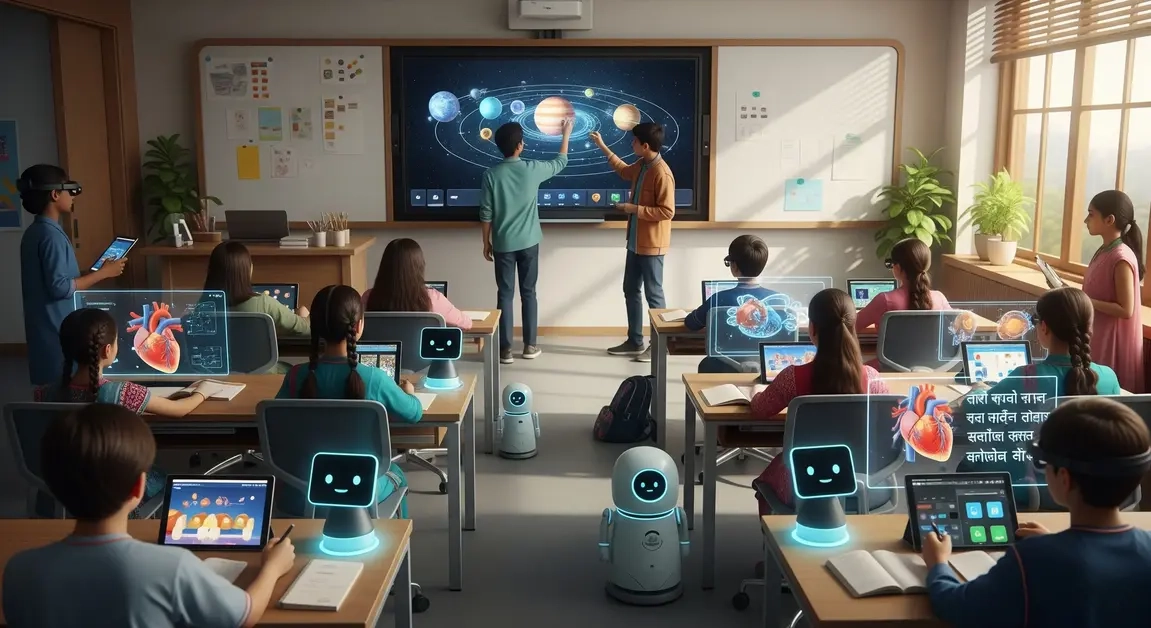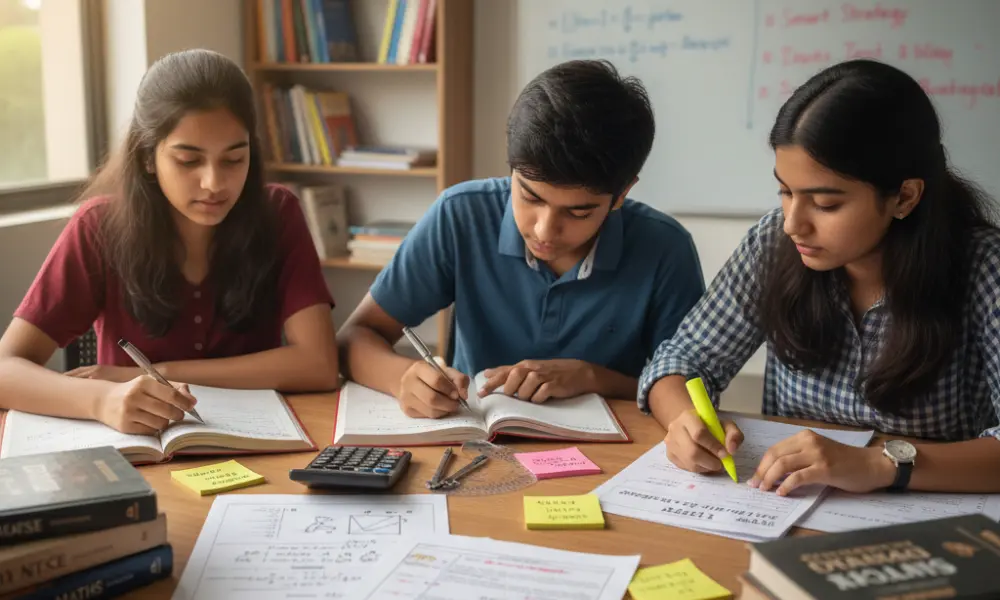How new policies, technologies, and learning models are reshaping Indian school education
India's school education system is undergoing a major transformation, driven by NEP 2020, digital innovation, and skill-based reforms. This blog breaks down the key trends shaping the future of CBSE and NCERT education — from personalized AI tutoring to career-ready classrooms — to help parents and students stay ahead of the curve.

The National Education Policy (NEP) 2020 has introduced a radical shift in how education is structured in India. Moving away from rote learning, the policy emphasizes critical thinking, conceptual understanding, and multilingual exposure. It replaces the 10+2 model with a 5+3+3+4 structure, integrating foundational learning with more flexibility in higher classes. Parents should be aware that board exams will gradually become competency-based, and assessments will test application rather than memory.
This policy shift empowers schools to focus more on experiential learning, project work, and vocational skills from a young age — creating a more well-rounded academic journey for children.
Digital education is no longer an optional supplement — it’s becoming the core. Tools like smart classrooms, virtual labs, and learning management systems are reshaping the way students engage with subjects. Platforms such as Diksha, PM eVidya, and Edzy have brought structured, curriculum-aligned digital content directly into students’ homes.
With increased device penetration and internet access, hybrid learning — a combination of physical and digital — is here to stay. Parents can expect more online homework, video lectures, AI-powered feedback, and interactive learning modules, even in traditional schools.
CBSE is actively introducing skill-based subjects from Class 6 onwards, including coding, data science, financial literacy, and entrepreneurship. The emphasis is shifting from simply scoring high marks to acquiring practical, transferable skills.
This change aligns school learning with real-world applications, making students more future-ready. Parents should encourage children to explore optional modules or co-curricular platforms that offer skill-building in creative problem solving, digital tools, and communication.
Every child learns differently. Ed-tech platforms like Edzy are now using artificial intelligence to deliver personalized learning paths. By analyzing student behavior, strengths, and weaknesses, adaptive systems adjust the pace and difficulty of lessons to suit individual needs.
This is a game-changer for students who struggle in traditional classroom environments or need acceleration in certain areas. Parents should look out for platforms that track progress, offer smart revision tips, and make learning feel personal, not mechanical.
From descriptive answers to multiple-choice questions and project-based evaluations — assessments in India are evolving. The CBSE is gradually adopting formative assessments that occur throughout the year rather than one-off high-stakes exams.
This reduces stress and allows students to showcase their understanding in varied formats: presentations, portfolios, or real-life applications. Parents can support this shift by focusing less on marks and more on consistent, concept-based learning throughout the year.
With NEP 2020 encouraging internships and vocational exposure even in school years, the lines between school education and career preparation are blurring. Schools are introducing industry-aligned electives, mentoring programs, and future-focused counseling.
As careers in AI, climate tech, digital marketing, and robotics emerge, the school curriculum is adapting to match these trajectories. Parents should encourage career exploration early on — not just through textbooks, but by exposing children to real-world careers via videos, webinars, and interactive tools.
AI is not replacing teachers — it's becoming their digital assistant. In platforms like Edzy, AI powers real-time doubt solving, revision planning, and concept reinforcement. It helps identify knowledge gaps early and adapts the content based on student performance.
AI also supports teachers by automating assessments, tracking progress, and offering targeted suggestions. Parents can leverage AI-based tutors to provide additional support outside the classroom and ensure a more personalized academic journey.
The World Economic Forum predicts that over 40% of core skills will change in the next five years. School education must prepare students not just for exams, but for a fast-evolving workforce. Critical thinking, digital literacy, collaboration, and emotional intelligence are becoming as important as math or science.
Initiatives like experiential learning, interdisciplinary projects, and exposure to global issues are equipping students with future-ready mindsets. Parents play a crucial role by helping children develop time management, problem-solving, and adaptability — traits that will matter far more than just scoring 90%.
“Education is no longer about preparing children for a single career. It’s about preparing them for a lifetime of change.”
The future of Indian school education is bright, dynamic, and deeply transformative. While the pace of change may feel overwhelming, parents who stay informed and proactive can help their children not just cope — but thrive. From AI tutors to skill-based subjects, from hybrid classrooms to future-ready careers — this is the time to embrace the change and prepare for a more meaningful, joyful learning journey ahead.

What Class 10 CBSE Students Should Know About Subject Choices After Boards
Navigating subject choices after Class 10 for a brighter future

How to Prepare for Olympiads and NTSE Alongside CBSE Exams
Mastering the balance between CBSE and competitive exams

The Ultimate Roadmap for Students Who Want to Study Abroad After CBSE
A comprehensive guide for CBSE students aspiring to study abroad.

How CBSE Skill-Based Subjects Are Shaping Future-Ready Students
Exploring the impact of CBSE skill-based subjects on student readiness for the future.